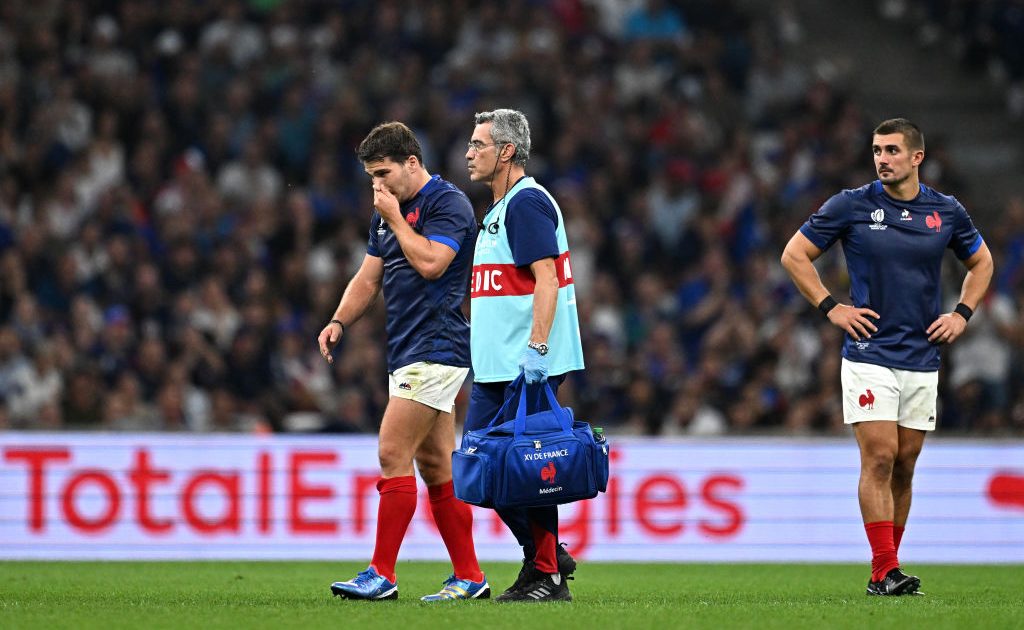Ibanez gives pitchside update on Antoine Dupont

France captain Antoine Dupont will undergo scans to determine the extent of the facial injury which overshadowed the hosts’ record 96-0 World Cup victory against Namibia in Marseille.
Dupont returned to skipper the side as one of 12 changes by head coach Fabien Galthie on the back of a laboured win over Uruguay, which had followed on from an impressive performance to defeat three-time world champions New Zealand in the tournament’s opening match.
The scrum-half, though, was forced off early in the second half following a clash of heads with Johan Deysel, which saw the Namibia captain shown a yellow card and sent to the sin-bin before it was upgraded to a red following a bunker review by the TMO.
Dupont was in tears as he left the field for an assessment, having taken a sickening blow to the side of his face, and did not return to the field.
Reports in France suggest Dupont had suffered a fractured cheekbone, which could put his participation in the rest of the tournament in doubt.
“Antoine got a big hit on his face and we will do some exams to make sure nothing is wrong with him, but he is a strong guy and we can rely on his strength,” France general team manager Raphael Ibanez said in a pitchside interview broadcast on ITV Sport.
“We feel sorry for Antoine. It just reminds us how dangerous it can be with a head-to-head contact.”
Damian Penaud plundered a hat-trick as France scored 14 tries to rack up a new record score, passing the 87-10 win over the same opponents at the 2007 World Cup, and were cheered throughout by a partisan home support.
“It was a good step up compare to the last game,” Ibanez said.
“We have many reasons to have a smile on our face tonight because we scored some decent tries with the home crowd, a lot of support and energy for the boys.
“We have got to leave with that energy, it is fantastic for our team and hopefully we keep on going.”
While France now move top of Pool A ahead of their final game against Italy, who have played a match less, Namibia are bottom with a points difference of minus 208.
Welwitschias head coach Allister Coetzee said: “It was a tough day at the office.
“I could see the first 20 minutes, they were flustered, they did things out of character, not sticking to the plan and it is just the pressure.
“We have to regroup. Our objective is still alive – to win a game at the World Cup.”














































































